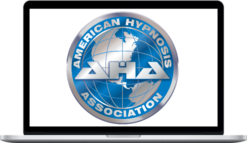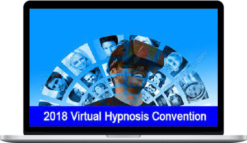Centre of Excellence – NLP for Children Diploma Course
$117.00 $33.00
»Instant Delivery
Description
Centre of Excellence – NLP for Children Diploma Course
Description Of NLP for Children Diploma Course
The NLP for Children Diploma Course aims to introduce you to all the different ways in which you can use neuro-linguistic programming (NLP) with children. As a parent, carer or teacher, you will be able to gain the trust of children or students and, from there, you can positively influence their thinking, language patterns, and behaviours. Sometimes a child exhibits a behaviour that is completely out of the blue or that isn’t very resourceful. With NLP, you’ll be able to understand the origin of all the things a child does or says.
The NLP for Children Diploma Course takes you through the basics – what NLP is, what its benefits are, and how and why it can help children.
You’ll learn about the types of representational systems, why they are important, and how understanding a child’s preferred representational system can help you to communicate better with them.
We’ll look at how using the Meta Model and the techniques of anchoring and reframing can aid you in helping children to overcome limiting beliefs and anxiety, increase their confidence, and encourage them to have resourceful and positive states of mind.
The course explains NLP techniques that will help to boost a child’s confidence, help them overcome fears, anxiety and depression, equip them with mechanisms to deal with their emotions and behaviours, and improve their focus.
What you’ll learn in NLP for Children Diploma Course
By studying this course, you will:
- Understand the purpose and benefits of NLP
- Learn key NLP concepts, such as Representational Systems, Meta Model, and Anchoring and Reframing
- Discover techniques to help boost confidence, remove limiting beliefs, overcome anxiety and depression, manage anger, and improve focus and learning skills
- Understand how to put NLP techniques into practice
Course Syllabus
Module 1: The Basics
- Introduction
- Part 1: What is NLP?
- Part 2: The Logical Levels of Change in NLP
- Part 3: How Can NLP Help?
- Part 4: Why Does NLP Work Well with Children?
- Test Your Knowledge
- Key Learning Points
- Module 1 Assessment
Module 2: Representational Systems
- Part 1: Understanding Representational Systems in NLP
- Part 2: VAKOG – Visual, Auditory, Kinaesthetic, Olfactory, Gustatory
- Part 3: Eye Accessing Cues
- Part 4: How to Use Representational Systems to Help Children Improve Their Ability to Learn
- Part 5: How to Improve Communication with Children Using Representational Systems
- Test Your Knowledge
- Key Learning Points
- Module 2 Assessment
Module 3: The NLP Meta Model
- Part 1: What is the NLP Meta Model?
- Part 2: The Three Main Categories Within the Meta Model
- Test Your Knowledge
- Key Learning Points
- Module 3 Assessment
Module 4: Anchoring and Reframing
- Part 1: What is Anchoring?
- Part 2: Types of NLP Anchors (VAK)
- Part 3: How to Anchor and Different Types of Anchors
- Part 4: Reframing and the Six Step Reframe
- Test Your Knowledge
- Key Learning Points
- Module 4 Assessment
Module 5: NLP for Boosting Confidence in Children
- Part 1: Confidence Killing Words and What to Say Instead
- Part 2: Changing Self-Talk and Limiting Beliefs
- Part 3: Confidence Boosting Techniques
- Test Your Knowledge
- Key Learning Points
- Module 5 Assessment
Module 6: NLP for Releasing Fear, Phobias, and Limiting Beliefs
- Part 1: Fear and Phobias
- Part 2: NLP Techniques for Releasing Fear and Phobias
- Part 3: Releasing Limiting Beliefs
- Test Your Knowledge
- Key Learning Points
- Module 6 Assessment
Module 7: NLP for Overcoming Anxiety and Depression in Children
- Part 1: Causes and Signs of Anxiety and Depression in Children
- Part 2: NLP Techniques for Anxiety and Depression
- Test Your Knowledge
- Key Learning Points
- Module 7 Assessment
Module 8: NLP for Managing Anger and Tantrums in Children
- Part 1: Types and Causes of Anger in Children
- Part 2: NLP Techniques for Anger in Children
- Part 3: What to Avoid When a Child is Angry or Throwing a Tantrum
- Test Your Knowledge
- Key Learning Points
- Module 8 Assessment
Module 9: NLP for Improving Focus and Learning Skills in Children
- Part 1: Prerequisites for Improving Focus
- Part 2: Classroom NLP for Teachers/Educators
- Test Your Knowledge
- Key Learning Points
- Module 9 Assessment
Module 10: Case Studies of NLP for Children
- Part 1: Case Study #1
- Part 2: Case Study #2
- Part 3: Case Study #3
- Test Your Knowledge
- Key Learning Points
- Conclusion
- Module 10 Assessment
Who Would Benefit from This Course?
The NLP for Children Diploma Course will introduce you to the benefits of using NLP with children and how to apply them using a variety of techniques.
If you are a parent, apply these tools with your children, and they will thank you later for shaping them into amazing human beings.
If you are a teacher, take these techniques to the classroom. If you find a fellow teacher stuck with some challenging behaviours in their class, you can provide insight with what you have discovered here.
Please note, that if you wish to become an NLP Practitioner, you will not be able to do so by studying this course alone. However, our NLP Foundation Skills, NLP Practitioner, and NLP Master Practitioner courses will help you towards your goal.
About Centre of excellence
Here at Centre of Excellence we are supremely proud to be at the heart of a vibrant community of hard-working students. The determination and enthusiasm of our students never ceases to impress us and there is nothing better than seeing our graduates go on to succeed in further education, work, business or just life in general!
More courses from the same author: Centre of excellence
Delivery Policy
When will I receive my course?
You will receive a link to download your course immediately or within 1 to 21 days. It depends on the product you buy, so please read the short description of the product carefully before making a purchase.
How is my course delivered?
We share courses through Google Drive, so once your order is complete, you'll receive an invitation to view the course in your email.
To avoid any delay in delivery, please provide a Google mail and enter your email address correctly in the Checkout Page.
In case you submit a wrong email address, please contact us to resend the course to the correct email.
How do I check status of my order?
Please log in to HealingCourse account then go to Order Page. You will find all your orders includes number, date, status and total price.
If the status is Processing: Your course is being uploaded. Please be patient and wait for us to complete your order. If your order has multiple courses and one of them has not been updated with the download link, the status of the order is also Processing.
If the status is Completed: Your course is ready for immediate download. Click "VIEW" to view details and download the course.
Where can I find my course?
Once your order is complete, a link to download the course will automatically be sent to your email.
You can also get the download link by logging into your HealingCourse account then going to Downloads Page.
Related products
Total sold: 2









